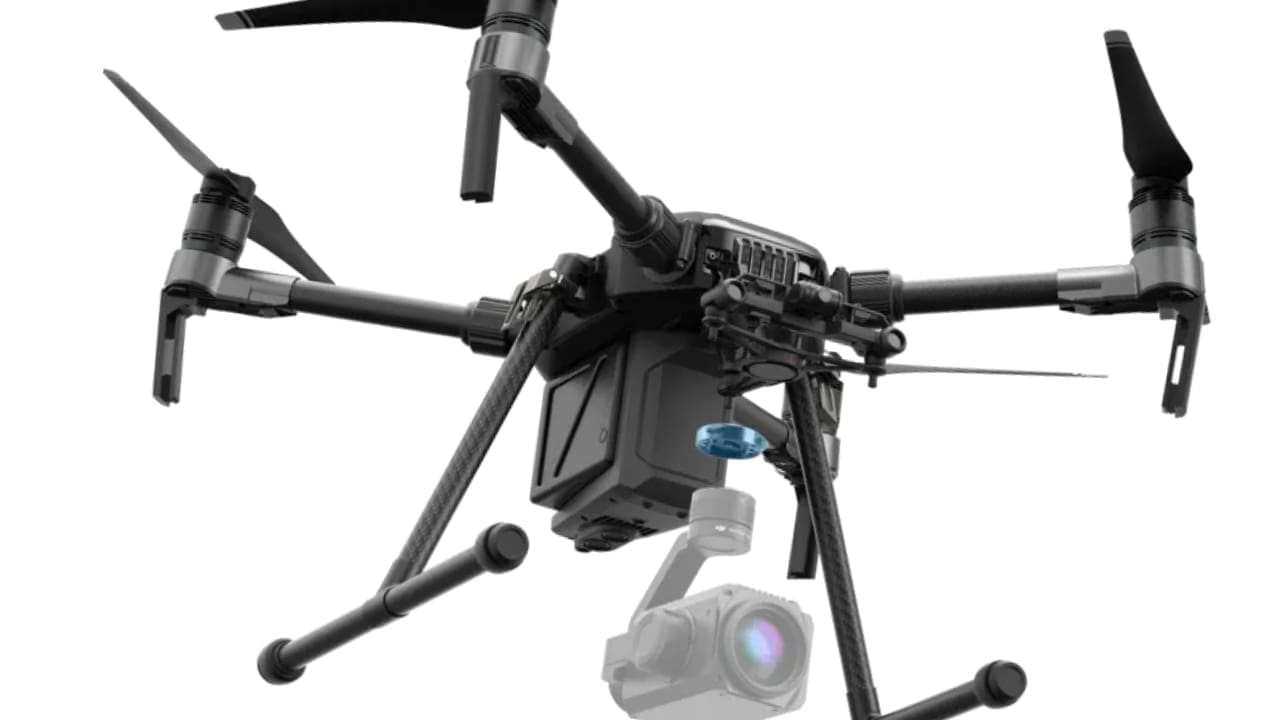The government of Gauteng revealed in October 2022 plans to install thousands of CCTV cameras in the province, launch an electronic panic button for residents and bolster the provincial police force with consumer drones as the province remains the most crime-ridden in the country.
While the CCTV cameras went up with the help of Vumacam, and the ePanic button is now available for download, the uptake of drones for the police has been slower for a number of reasons, but it is definitely happening.
As the sole enterprise distributor of DJI drones in South Africa – DJI being the global market leader of consumer drones with an over 70 percent share – Rectron supplies these flying devices to the South African Police Service (SAPS) in Gauteng through its resellers to accomplish the government’s goals.
While Rectron did not directly interact with the provincial government or SAPS to sell the drones, Ruan Botha, Drones Product Manager at Rectron, tells Hypertext that its myriad resellers were the suppliers and Rectron is then only responsible for the education that is required to operate the DJI drones.
In fact, for the resellers to apply for tenders to sell drones to SAPS, Rectron had to aid the resellers with documentation such as manufacturing authorisation letters, ICASA certifications, and working directly with the Civil Aviation Authority for the licensing of the drones heading to the police.
SAPS tender for drones “a bit off”
In this case, while Rectron does not apply for tenders, it does see the tender specs that the government is putting out there. For this, Botha tells us, that the government is looking for the wrong drones.
“The problem with the tender specs is that they are a bit off,” he says, “The government specs for smaller drones, cheaper drones, more on the consumer range and not really fit for the application. So that’s also something we are pushing, to try and educate whoever is writing these tender specs to move into the right space, right equipment.”
Gauteng Premier Panyaza Lesufi specified exactly what the SAPS want to do with the drones they are purchasing in a State of the Province Address delivered in February 2023. He wanted the drones to “infiltrate areas that are difficult to patrol and police.”
He also said at the time that the drones would feature acoustic gunshot detection, and that “every ward in our communities will have a 24-hour patrol car equipped with proper gadgets.”
If “proper gadgets” also includes drones in the equation, that would mean a fleet of thousands but according to Rectron’s DJI Enterprise Business Development Manager James Ramotlou, SAPS in Gauteng is likely fielding only around 200 DJI drones, growing by 100 units a year.
He says that this is for the enterprise version of the DJI drones, but the police could be fielding many more smaller consumer-type drones.
Prior to sending out tenders, Ramotlou says that the government and SAPS were hiring their drones from other service providers, like security companies such as Fidelity, instead of buying them directly from sellers. Now that purchases are happening directly, SAPS is also turning towards training police officers to pilot the drones correctly.
“It’s really important,” adds Ramotlou, “Because the way we picture it, every police vehicle should be equipped with at least one drone. That’s what will lead us to the 200 000 drones.”
DJI drones for defence and border patrols
Aside from the drones that SAPS is looking to purchase, Botha says that Rectron has seen the local market for the devices pick up for defence and patrolling along South Africa’s borders, as well as traffic management within the cities.
The South African National Defence Force (SANDF) was reportedly investing millions in the production of five Milkor 380 drones, capable of long-range unmanned reconnaissance as well as dropping a payload of max 210kgs.
With the ubiquitous prevalence of drones used in warfare such as in Ukraine and in Palestine, the SANDF would seem like an obvious buyer of DJI drones, especially for scouting or more deadly operations.
Ramotlou told us that “certain NDAs” prevent them from telling us much more about their dealings with the SANDF when it comes to their own drone aspirations. The pair also said that Rectron does not condone its DJI products used in any war efforts.
“There is conversations,” he says, however, while Botha adds “It’s in the conversation stage. Nothing has been rolled out.”
Until that rolls out, Rectron and its DJI wing are keeping their primary focus on the agriculture industry, with Botha telling us that the drone business is a “booming market” when it comes to South African farmers.
Especially with the latest innovations that DJI is offering, which can be pre-programmed and complete routes across entire farms automatically, spraying pesticides, scouting the health of the produce and more.
“The sensing capabilities and the radar systems have been improved tremendously,” Botha tells us. Ramotlou says that nowadays the farmer must just set up the route and see the drone go off “with just a click of a button.”
[Image – DJI]

